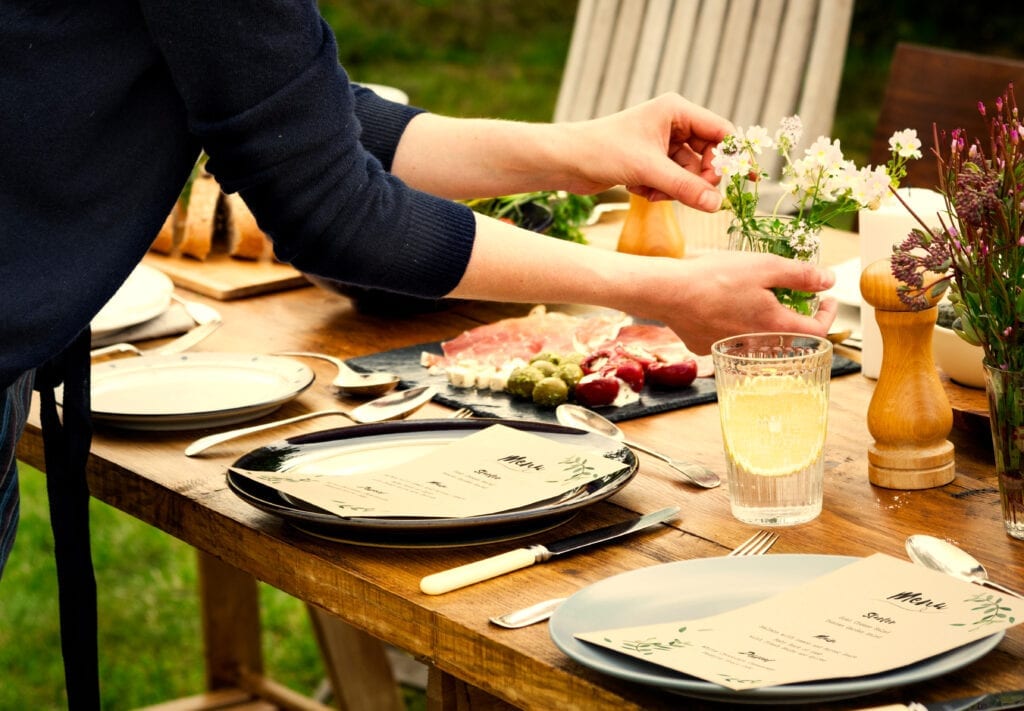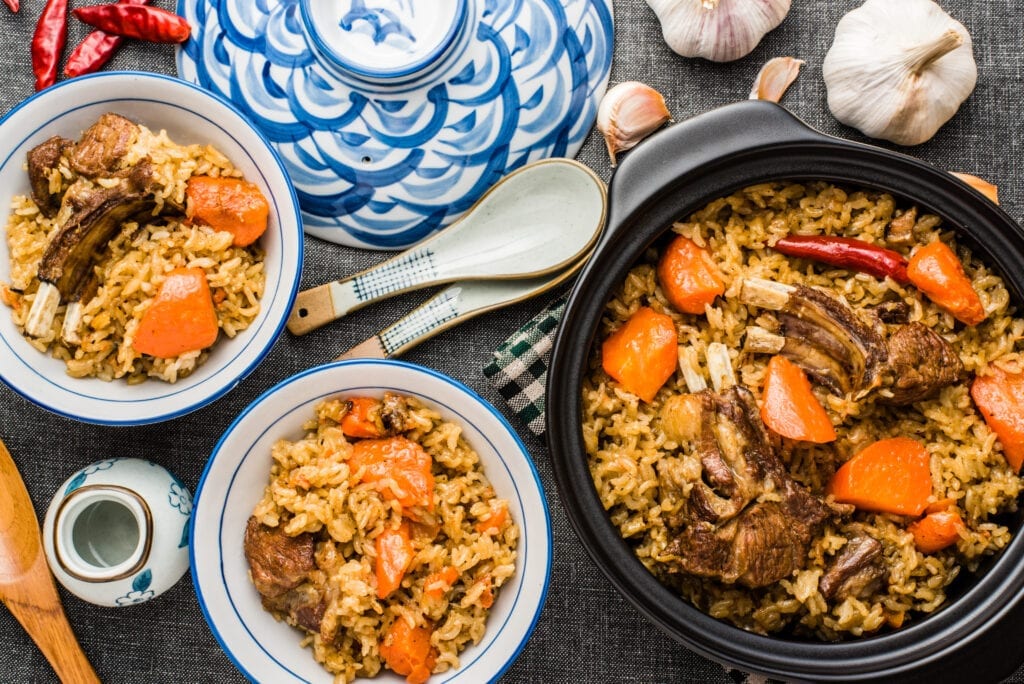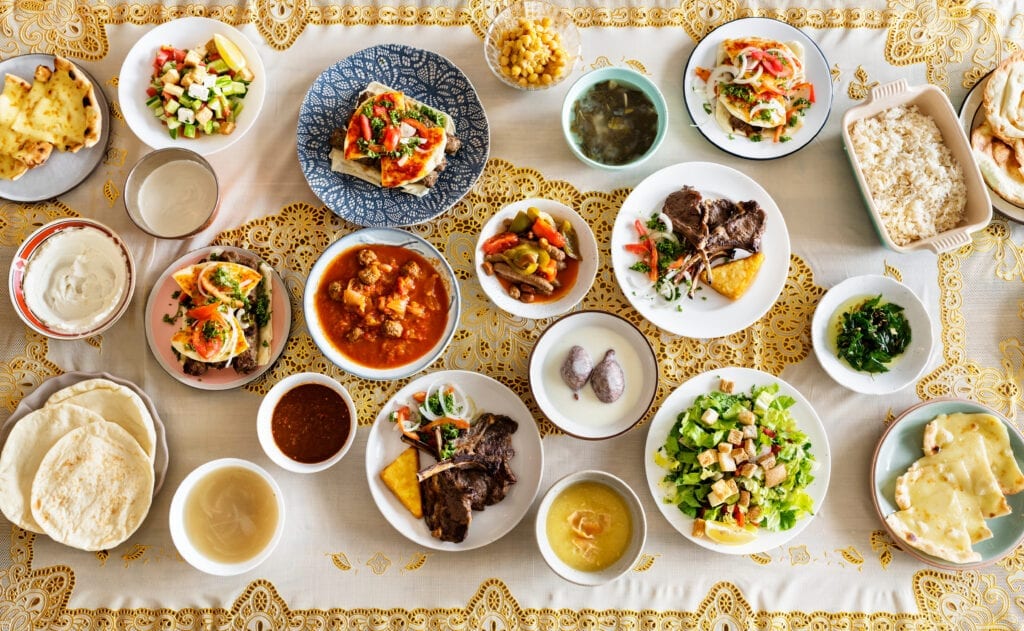
The Beginner’s Guide to Dawats
Calling relatives to join in for a casual dinner sounds easy and fun. But only if you do not belong to an Asian household. We, the people of the land of spices, herbs, fruits, and the finest cuisine, take pride in our culinary skills. The kitchen is our kingdom, the apron is our robe, and the cooking pot is our treasury. For that very reason, even casual dinners with even one guest eventually attain the status of a Dawat.
By definition, Dawat is an Urdu/Hindi term form for occasional feasts. But as mentioned earlier, being food enthusiasts, we do not waste even a single opportunity of transforming a casual dinner into a royal feast. And thus, as the receiver comes down after the invitation delivery, the countdown begins for the host-house.
Until the guests come, the house remains in a state of mess. The chef/chefs (usually moms!) of the house remain occupied in the kitchen, cooking scrumptious meals, washing the best of dishes, and arranging the foodstuff. While the kids run about and around, dusting off tables and chairs, cleaning up their messed-up rooms, and setting the dining area. So, everything in the house seems to compliment the carefully cooked dishes and augment their taste.
However, despite all the struggle, most of us, especially the beginners, mess up in the end. We’re unable to deliver the exact ambiance and taste to our guests, which we imagined in our minds. To help you with that bit, here are the factors to consider to make your Dawat a success without overstressing yourself.

1. Number of People
The number of people attending the Dawat matters a lot. So first, take out a notepad and make a list of guests you have invited. Now, add 10 to your total count as at times, more people come to your Dawat than anticipated. 😉 Well, if you have a figure ranging from 20-30, then consider it as a small-scale Dawat, and if you have a larger figure, then congratulations, because you have more work on your plate! 😄
But hey! Don’t stress out because I have a good way to handle the matter. For a small-scale Dawat, you have an advantage that you can go with a more detailed and complex menu plan, such as Shepherd’s pie, Kofte, Chicken Roast, Steaks, and Black Forest cakes. It is okay to keep a greater quantity of dishes. However, if you have a larger number of guests coming, then go with a traditional menu plan with lesser, but fulfilling dishes, like Biryani, Qurma, and Kheer.
Personally, I avoid baking dishes at bigger Dawats because cooking them in bulk that too with perfection is difficult for one person.

2. Age Group
Another important factor is the age group of your guests. If your guests comprise mostly of children, then keep the spices in your dishes milder. Also, try to add in a dish or two that suits children, like burgers, pasta, and pizza. Plus, children tend to eat lesser than adults so, keep the quantity in mind. Similarly, if your guest plan comprises primarily of seniors, then keep a traditional and classical menu, such as Reshmi Kebab.
3. Types of Guest
The guest type refers to personal preference in eating. Find out whether your guests like traditional Asian dishes or love western cuisine. One of doing so is to question them about their dislikes. People are more open in telling their dislikes than likes. So, let’s suppose, if your old friends are coming over, who hate apple pies, then it is certainly not a good time to show off your apple pie-making skills.
4. Dietary Restrictions
Once you have invited your guest, do question them about dietary restrictions. If your guests are vegan or allergic to some ingredients, then you will have to customize your menu planning accordingly. However, if merely a few people have such restrictions, then make dishes that everyone can enjoy. For example, you can make vegetable spring rolls for starter and vegetarian lasagna for the main course if some of the guests are vegan.

5. Theme
You must also consider the theme of the event and design the menu plan likewise. For example, if the Dawat is in the account of Eid-ul-Adha, then people will expect dishes of mostly beef and mutton.
6. Budget
The budget forms a significant part of Dawat planning. Regardless of the frequency of the Dawats you arrange, you certainly do not wish to waste money on ten extra pouches of ketchup. For that very reason, you need to give time to budget planning and distribution. If you’ve got enough time at your disposal, then start preparing for the Dawat early and purchase relevant foodstuffs from sales to store them for later use.
Leave your comment
You must be logged in to post a comment.